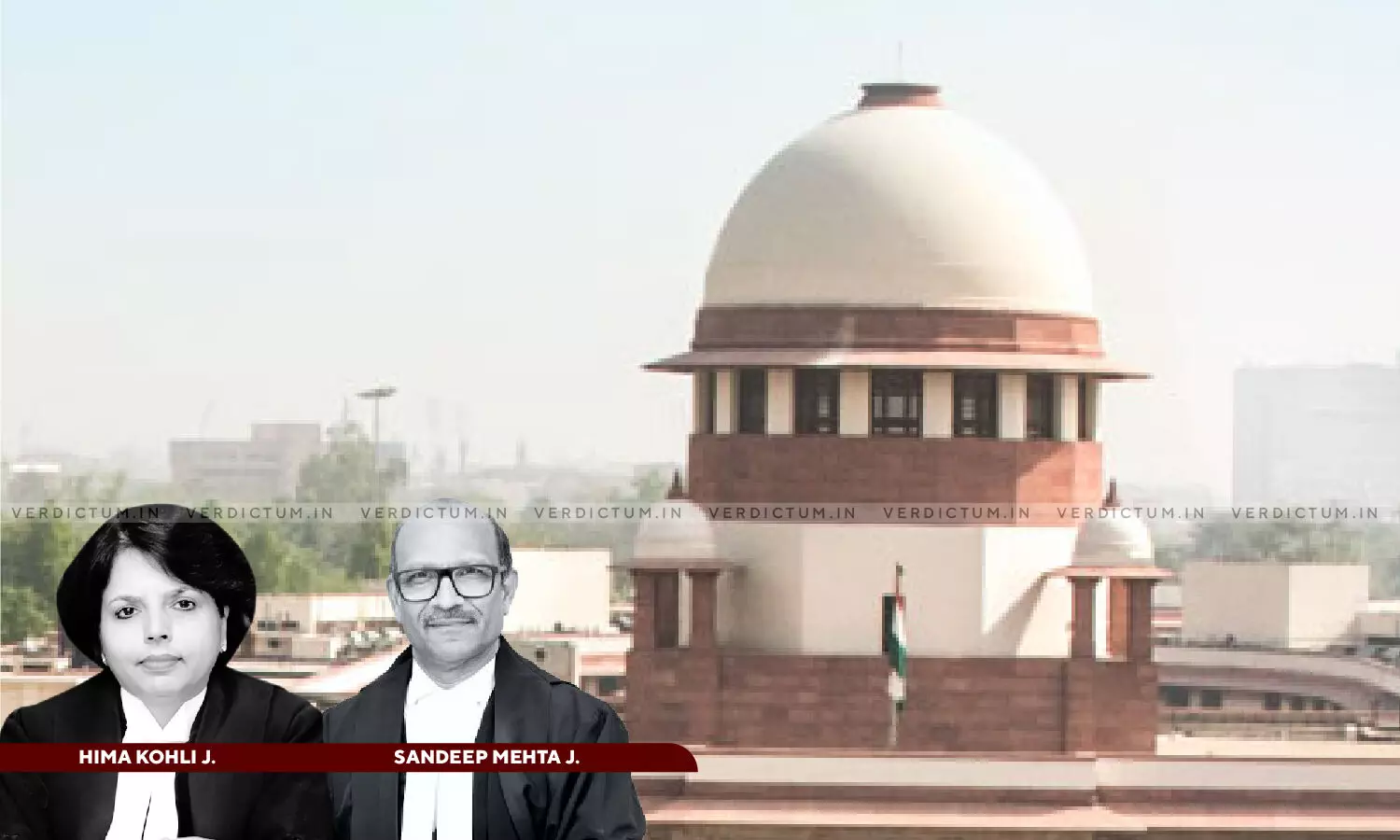
Denial Of Pensionary Benefits Solely On The Basis Of Their Temporary Status Not Justifiable: Supreme Court Grants Relief To SSD Fund Temporary Employees
 |
|The Supreme Court directed to extend the benefits of the 6th Central Pay Commission including the pensionary benefits under the Revised Pay Scale Rules, 2008 to some Compulsory Saving Scheme Deposits (SDD) Fund temporary employees.
The Court allowed a civil appeal preferred against the judgment of the Delhi High Court.
The two-Judge Bench of Justice Hima Kohli and Justice Sandeep Mehta said, “Thus, we are of the opinion that the denial of pensionary benefits to the appellants is not tenable or justifiable in the eyes of law as the same is arbitrary and violates the fundamental rights as guaranteed by Articles 14 and 16 of the Constitution of India.."
The Bench referred to the judgment in the case of Ajay Hasia and Others v. Khalid Mujib Sehravardi and Others (1981) 1 SCC 722 in which the Apex Court established several tests to determine whether an entity can be considered an instrumentality or agency of the Government, and thus an 'authority' under Article 12 of the Constitution.
AOR Neha Rathi appeared on behalf of the appellants while ASG K.M. Nataraj appeared on behalf of the respondents.
Facts of the Case -
The appellants were appointed to manage the Compulsory Saving Scheme Deposits (SDD) Fund of the Special Frontier Force (SFF) in various positions such as Junior Accountant, Accountant, Upper Division Clerk (UDC), and Lower Division Clerk (LDC), on running pay scales. The SSD Fund is a welfare initiative funded through the personal contributions of the SFF troops from their salaries. Upon having been engaged as above, the appellants also received Traveling Allowance (TA), Dearness Allowance (DA), House Rent Allowance (HRA), Special Security Allowance (SSA), Gratuity, Bonus, Winter Allowance, and High-Altitude Allowance, etc. along with salary as per the 4th and 5th Central Pay Commissions (CPC).
In 2006, the Union of India implemented the 6th CPC and made the same applicable to all government employees of SFF. However, these benefits were not extended to the appellants i.e., SSD employees and instead, an ad-hoc amount of Rs. 3,000/- per month was given to each of them. Upon attaining the age of superannuation, the appellants claimed pensionary benefits but the same was rejected. Being aggrieved, they approached the Tribunal but it dismissed their applications. The Tribunal’s order was challenged before the High Court and the writ petition was rejected. Resultantly, they were before the Supreme Court.
The Apex Court in the above context of the case noted, “In Pradeep Kumar Bishwas(supra), this Court held that the tests laid down in Ajay Hasia(supra) are relevant for the purpose of determining whether an entity is an instrumentality or agency of the State. Neither all the tests are required to be answered in positive nor a positive answer to one or two tests would suffice. It will depend upon a combination of one or more of the relevant factors depending upon the essentiality and overwhelming nature of such factors in identifying the real source of governing power, if need be by removing the mask or piercing the veil disguising the entity concerned.”
The Court held that the appellants meet the characteristics of regular government servants as they were appointed on a regular pay scale and this factor strongly indicates a formalised employee-employer relationship akin to permanent government employees.
“The provisions of leave and other benefits, including grant of Assured Career Progression (ACP), further reinforces the similarity between the appellants' employment conditions and those of regular government employees. These benefits are typically associated with formalized, long-term employment relationships within the government sector”, it further noted.
The Court added that the appellants' charter of duties involving the maintenance of accounts for the SSD Fund, can be considered as an assignment of public importance closely related to governmental functions.
“In the present case, the totality of circumstances indicates that despite their formal classification as temporary employees, the appellants' employment bears substantial hallmarks of regular government service. The denial of pensionary benefits solely on the basis of their temporary status, without due consideration of these factors, appears to be an oversimplification of their employment relationship with the government. This approach runs the risk of creating a class of employees who, despite serving the government for decades in a manner indistinguishable from regular employees, are deprived of the benefits and protections typically accorded to government servants”, it also observed.
The Court concluded that the denial of pensionary benefits to the appellants is not tenable or justifiable in the eyes of law as the same is arbitrary and violates the fundamental rights as guaranteed by Articles 14 and 16 of the Constitution.
Accordingly, the Supreme Court allowed the appeal, set aside the impugned judgment, and directed the respondents to extend the benefits of 6th CPC including pensionary benefits.
Cause Title- Rajkaran Singh & Ors. v. Union of India & Ors. (Neutral Citation: 2024 INSC 621)
Appearance:
Appellants: AORs Neha Rathi, Monika Gusain, Advocates Kamal Kishore, Pranav Sachdeva, and Kajal Giri.
Respondents: ASG K.M. Nataraj, AOR Arvind Kumar Sharma, Advocates B K Satija, Vatsal Joshi, Sharath Nambiar, Divyanshu Kumar Srivastava, and Siddharth Venkatesh Thakur.